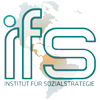Der Forschungsbereich Globale Zivilgesellschaft ist Herzstück des IfS. Es geht um die zentrale Frage, in welcher Gesellschaft wir zusammen leben wollen. Denn unter Globale Zivilgesellschaft versteht das IfS: Alle Menschen und Organisationen, soweit sie nicht Akteure des Staates oder des organisierten Verbrechens sind. Dieses breite Verständnis spiegelt sich in den Beiträgen wider.
Kategorie: Globale Zivilgesellschaft

A Brexit view from the standpoint of an English person living in Germany
September 2019 A Brexit view from the standpoint of an English person living in Germany get pdf: A Brexit View...

Das Grundgesetz: veritable Referenzordnung in der Form westlich-atlantischer Verfassungen
Abstract [en]: Political and social upheavel such as the fall of the Iron Curtain often result in a new constitutional...

Angst vor Kontrollverlust in einer veränderten Welt
Abstract [en]: In a world with an enormous speed of change, people are exposed to fears of losing control over...

Sexuelle und Reproduktive Rechte als global ’neu entdeckte’ Menschen- und Minderheitenrechte. Teil 3
Abstract [en]: Sexual and Reproductive Rights developed since the 1980s on a global level as increasingly inclusive concept. Finally, they...

Sexuelle und Reproduktive Rechte als global ’neu entdeckte’ Menschen- und Minderheitenrechte. Teil 2
Abstract [en]: Sexual and Reproductive Rights developed since the 1980s on a global level as increasingly inclusive concept. Finally, they...

Sexuelle und Reproduktive Rechte als global ’neu entdeckte’ Menschen- und Minderheitenrechte. Teil 1
Die Studie "Sexuelle und Reproduktive Rechte als global 'neu entdeckte' Menschen- und Minderheitenrechte. Durchsetzung durch legale Rahmensetzung oder (vernetzte und...

Das Konzept der Meinungsäußerungsfreiheit in der U.S. Verfassung. Dargestellt anhand von Urteilen der U.S. Gerichtsbarkeit zum First Amendment
Abstract [en]: Freedom of speech is a necessary precondition for democratic public discourse. Meanwhile governments regularly present themselves in the...

GLOBALISIERUNG OHNE OPFER – EIN ZUKUNFTSENTWURF
PRESSEMITTEILUNG: Juli 2018 Juli 2018 GLOBALISIERUNG OHNE OPFER – EIN ZUKUNFTSENTWURF Bericht von Prof. Dr. Dr. Ulrich Hemel über die...

Korea, das verschlossene Land. Erlebnisse und Einordnungen
Abstract [de]: Die Zeitspanne zur gegenseitigen Totalvernichtung zwischen Nord- und Südkorea beträgt fünf Minuten. Autor Günter Ederer ist ein langjähriger...

Beitragsveröffentlichung: Die ‘samtene Revolution’ in Armenien
PRESSEMITTEILUNG: Juni 2018 Juni 2018 Irina Ghulinyan-Gerz: Die 'samtene Revolution' in Armenien. Wie Russland den armenischen 'Maidan' akzeptierte Die "samtene...
